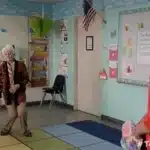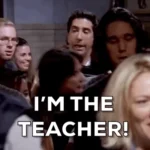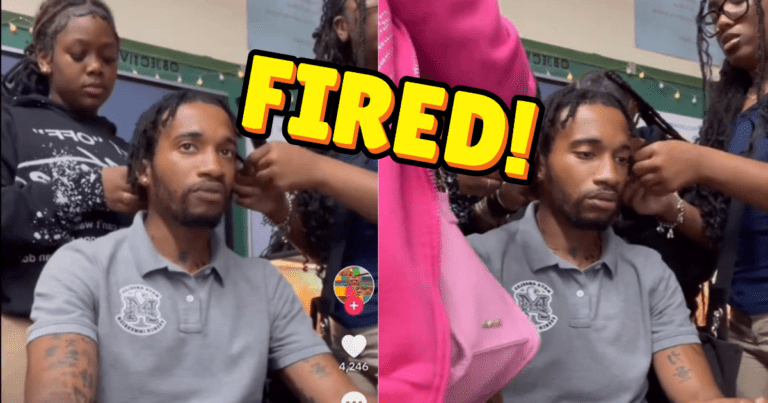In today’s hyper-connected world, social media can amplify even the most mundane moments into life-altering events. This was the unfortunate reality for Jaq Lee, a middle school science teacher, whose career took a dramatic turn after a video of his students unbraiding his hair went viral on TikTok. What started as a lighthearted classroom moment quickly spiraled into a nationwide debate, ultimately leading to Lee’s dismissal.
The Incident
Jaq Lee, who was known for his engaging presence both in the classroom and on social media, shared a TikTok video where his students helped him take down his braids. The video, which was intended to show a fun and supportive interaction between teacher and students, quickly gained traction online. In the video, Lee explained that he had an appointment after school and needed help taking out his braids, so he asked four of his students to assist him. The video, however, elicited mixed reactions—while some viewers saw it as a harmless and bonding moment, others criticized it as unprofessional and inappropriate.
Going Viral: The Double-Edged Sword of Social Media
The video’s rapid spread across platforms like TikTok, Instagram, and X (formerly Twitter) highlights the unpredictable nature of social media. While some praised Lee for his genuine connection with his students, others questioned the boundaries of teacher-student interactions. The criticism grew loud enough that it caught the attention of school administrators, who, facing public pressure, decided to terminate Lee’s employment.
BIN: Black Information Network
The Broader Implications
Lee’s firing has sparked a larger conversation about the vulnerabilities teachers face in the age of social media. In an environment where a single video can define a person’s career, educators are increasingly walking on eggshells. The incident underscores the need for clearer guidelines around social media use in schools, both for teachers and students, to prevent such misunderstandings from escalating.
Why This Matters
Jaq Lee’s case is not just about one teacher losing his job; it’s a reflection of a broader trend that could affect educators everywhere. When school administrations react hastily to public opinion without a thorough investigation, it sets a dangerous precedent. Teachers may become overly cautious, fearing that any misstep, no matter how well-intentioned, could lead to similar consequences.
What Can Be Done?
To protect educators and maintain a healthy school environment, several measures should be considered:
-
Establish Clear Social Media Policies: Schools need to develop and enforce comprehensive social media guidelines that outline acceptable interactions and content sharing for both teachers and students.
-
Provide Support for Teachers: School administrations should offer support to teachers when such incidents occur, ensuring that decisions are made based on a full understanding of the situation rather than succumbing to public pressure.
-
Educate Students on Social Media Etiquette: Students should be taught about the potential impact of their actions online, including how seemingly innocent content can have serious repercussions.
Conclusion
Jaq Lee’s experience serves as a cautionary tale about the power and peril of social media in the teaching profession. As we continue to navigate this digital landscape, it is crucial to strike a balance between maintaining professional boundaries and allowing teachers to build meaningful connections with their students. In doing so, we can help protect the integrity of the teaching profession while ensuring that educators feel supported and understood.


